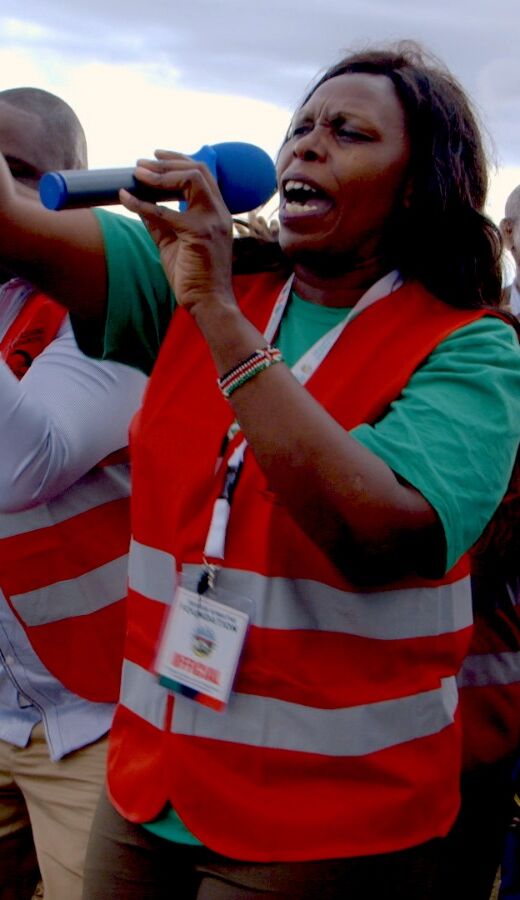Wanjugu Kimathi
Seeks justice for freedom fighters
Following in her parents’ footsteps, Kenyan Wanjugu Kimathi works for rehabilitation and compensation of former members of the Mau Mau insurgent group. Her quest to find the remains of her father, Mau Mau leader Dedan Kimathi, has developed into a much broader activism. Her motto: ‘Let the truth be told without fear.’
‘I was born in a freedom fighters family,’ Wanjugu Kimathi says at the start of the documentary Our Land, Our Freedom. ‘My mother was a freedom fighter. My father was the leader of the Kenya Land and Freedom Army. The British called them the Mau Mau.’ As a child, Wanjugu was deeply moved by the stories her mother Mukami told her about the Mau Mau struggle. Starting in 1952, they rebelled against land expropriation by the British colonizer. Mukami’s husband Dedan Kimathi was their leader.
In 1957, Dedan Kimathi was hanged and his body dumped at an unknown location. Ever since, Mukami has searched for her late husband’s remains – unsuccessfully. ‘I want to be given the remains of Dedan Kimathi,’ she says in Our Land, Our Freedom. ‘So that we can bury him like a king.’
Now, Wanjugu Kimathi continues her mothers’ search. Through the Dedan Kimathi Foundation, she is doing much more. The Foundation raises funds to support Mau Mau veterans and their families. Following the Mau Mau uprising, an estimated 1 million people were detained in concentration camps around the country. Thousands were tortured and killed. To this day, many people still live in these forced re-settlement ‘villages’. Together with land rights organisations, Wanjugu tries to support them in land disputes and to arrange for them to get their own piece of land. It has earned her much support among Mau Mau veterans. As one of them says in the documentary: ‘We took up the call to arms, and we led the battle. Now we’re retired. Our days are coming to an end. Now it’s your time to fight.’
Our Land, Our Freedom is shown at the Movies that Matter Festival, where Wanjugu Kimathi is a special guest.
